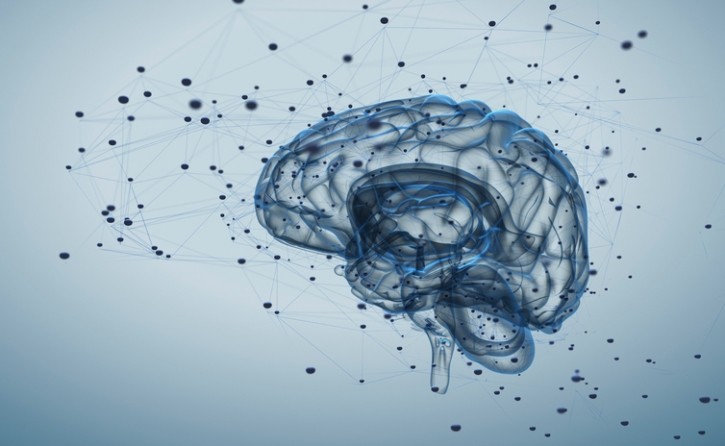Genome study links vitamins B12, C and iron to mental health

The study, published in Nutrients, concluded there was a negative relationship between vitamin B12 and depression and causal link between vitamin C and Alzheimer's, as well as iron status and autism.
Micronutrient deficiencies are common public health concerns, particularly, iron, vitamin B12, and vitamin C. Observational studies have shown children with iron deficiency anemia are more likely to experience developmental delays and behavioral disturbances and it’s been suggested that maintaining higher serum B12 levels in older adults protects against Alzheimer’s disease (AD). However, causal evidence on the link between micronutrients and mental health disorders has been lacking.
Genome-wide association studies (GWASs) allow the understanding of the genetic underpinnings of micronutrient metabolism and deficiency and have pinpointed noteworthy genetic variations, aka SNPs (single nucleotide polymorphisms), linked to micronutrient insufficiency.
The recent report stated: “The integration of genetic insights into public health and clinical practices is paving the way for personalized and precision nutrition interventions.”
The study
Linkage disequilibrium score (LDSC) allows researchers to gauge genetic correlations amid multiple human complex traits utilizing GWAS summary data while mendelian randomization (MR) can be used to assess the causal relationship between exposure factors and outcomes.
Utilizing publicly available genome-wide association study (GWAS) summary datasets, the researchers from Xi’an Jiaotong University in China, first performed LDSC regression analysis to explore the genetic correlation between mental health disorders and micronutrients. To validate the causality between candidate micronutrients and mental health, they conducted an MR analysis.
Specific micronutrients of interest were significantly associated with the risk of mental health disorders identified in previous studies, including iron, vitamins A, vitamin B6, B1, C and D and folic acid. After discounting some of these due to lack of significant SNPs or absence of data, the team ultimately selected iron, vitamin C, and vitamin B12 as variables.
Mental health disorders were selected based on their high public health burden, the availability of genetic data, and the known or hypothesized association with micronutrient levels. Six neuropsychiatric traits were enrolled from the largest recent GWASs, including Alzheimer’s disease (AD), attention-deficit/hyperactivity disorder (ADHD, autism spectrum disorder (ASD), major depressive disorder (MDD), bipolar disorder (BIP), and post-traumatic stress disorder (PTSD).
LDSC detected serum iron and vitamin C as candidate micronutrients for attention-deficit/hyperactivity disorder (ADHD), iron-binding capacity for Alzheimer’s disease (AD), and vitamins C and B12 for major depressive disorder (MDD).
Further MR analysis suggested a potential causal relationship between vitamin B12 and MDD.
Mechanism of action
Vitamin B12 is a necessary micronutrient to maintain proper neurological function, as it is involved in homocysteine regeneration, methionine synthesis, methylation process, and the synthesis of serotonin (5-HT). Low vitamin B12 levels can interfere with homocysteine regeneration to methionine and methylmalonyl-CoA (MMA) isomerization to succinyl-CoA, resulting in increased circulating levels of homocysteine and MMA. The increase in homocysteine can also raise the level of reactive oxygen and subsequently contribute to neuronal apoptosis, thus inducing depressive symptoms.
Iron is intricately connected to dopaminergic neurotransmission, as well as dopamine synthesis. The accumulation of iron might trigger neurotoxicity and synaptic toxicity via oxidative stress and ferroptosis, leading to overactive dopamine neurotransmission and ultimately contributing to psychiatric disorders.
Vitamin C is a powerful antioxidant, supporting neurodevelopment, regulating neurotransmitters, protecting neurons from oxidative stress-induced damage, and maintaining the normal function of the nervous system. In addition to reducing oxidative stress, vitamin C is crucial in inhibiting pro-inflammatory genes, neuroinflammation, and Aβ fibrillary genesis. The correlation between plasma vitamin C levels and AD was found in an observational study.
The authors noted that more research is necessary to clarify the underlying biological mechanisms by which micronutrients affect mental health.
They also noted Genome-wide association studies (GWAS) of some micronutrients (vitamin B6, vitamin A, and serum folate) could not be used to perform MR analysis because of inadequate significant SNPs, underscoring the necessity for larger-scale GWASs to investigate the causal link between micronutrients with mental health disorders comprehensively
Source: Nutrients
https://doi.org/10.3390/nu16132042
"Micronutrient-Associated Single Nucleotide Polymorphism and Mental Health: A Mendelian Randomization Study"
Authors: Hui, J.; Zhang, N.; Kang, M.; Gou, Y.; Liu, C.; Zhou, R.; Liu, Y.; Wang, B.; Shi, P.; Cheng, S.; et al.












